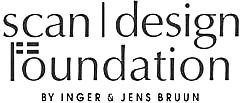The Distinguished Lecture Series at the Department of Human Centered Design & Engineering brings leading experts in the fields of human-centered design to the University of Washington to spark new ideas and innovative conversations. These events are free and are open to the public, as well as University of Washington faculty, students, and staff.
2020 Distinguished Lecturer
Kjeld Schmidt
The Design Conundrum of Computer Supported Cooperative Work
 Kjeld Schmidt is Professor of Work, Organization, and Technology at Copenhagen Business School, Denmark, and Senior Professor at the University of Siegen, Germany. Initially a software programmer (1965-72), Schmidt studied sociology at the University of Copenhagen, Denmark, and obtained his MSc degree in sociology from the University of Lund, Sweden, in 1974. Schmidt has been involved in the research area of Computer-Supported Cooperative Work (CSCW) since the 1980s and has played a key role in defining the field. Bridging from philosophy to sociology to computer science and encompassing ethnographic studies, conceptual analysis, and development of demonstrator prototypes, his research primarily has centered on the conceptual foundations of CSCW research. He is the author of Cooperative Work and Coordinative Practices (Springer 2011). In addition, he has published 70+ peer-reviewed journal articles, conference papers, and book chapters and has co-edited 27 books and special issues of scholarly journals. Kjeld Schmidt has been Editor-in-Chief of the international journal Computer Supported Cooperative Work (CSCW) since its launch in 1992 and has at the same time been centrally involved in organizing a large number of CSCW conferences. Schmidt was awarded the honorary title of dr.scient.soc. in 2007 and in 2013 he received the EUSSET-IISI Life Time Achievement Award.
Kjeld Schmidt is Professor of Work, Organization, and Technology at Copenhagen Business School, Denmark, and Senior Professor at the University of Siegen, Germany. Initially a software programmer (1965-72), Schmidt studied sociology at the University of Copenhagen, Denmark, and obtained his MSc degree in sociology from the University of Lund, Sweden, in 1974. Schmidt has been involved in the research area of Computer-Supported Cooperative Work (CSCW) since the 1980s and has played a key role in defining the field. Bridging from philosophy to sociology to computer science and encompassing ethnographic studies, conceptual analysis, and development of demonstrator prototypes, his research primarily has centered on the conceptual foundations of CSCW research. He is the author of Cooperative Work and Coordinative Practices (Springer 2011). In addition, he has published 70+ peer-reviewed journal articles, conference papers, and book chapters and has co-edited 27 books and special issues of scholarly journals. Kjeld Schmidt has been Editor-in-Chief of the international journal Computer Supported Cooperative Work (CSCW) since its launch in 1992 and has at the same time been centrally involved in organizing a large number of CSCW conferences. Schmidt was awarded the honorary title of dr.scient.soc. in 2007 and in 2013 he received the EUSSET-IISI Life Time Achievement Award.
Talk abstract:
Interactive and (especially) collaborative computing technologies raise conceptual issues that keep confounding us. What bothers us is the status of the representations or models of cooperative work relations that are incorporated in computational artifacts with the aim of regulating the coordination of cooperative work activities: how are they derived, how is their validity and legitimacy determined, how is their execution controlled, etc. and most importantly: how are actors, coordinating their local activities by means of these artifacts, supported in dealing with contingencies where the given model may be or is beyond its bounds?
The conundrum has been the object of discussion since CSCW emerged as an institutionalized area of research in the 1980s and has been explored under a range of different headings such as ‘office procedures’, ‘models’, ‘plans and situated actions’, ‘articulation work’, etc., all of which can be seen as so many versions of the old issue of ‘theory and practice’, namely, the issue that ‘theories’, as representations of general principles abstracted from experience, inevitably are bounded and that actors, in applying such principles, must be able to handle the contingencies from which the principles were abstracted in the first place. The fact that such representations are incorporated in computational artifacts does not alter that fact. But it has posed the issue in a new and bewildering manner. The conundrum arises not only when debating the CSCW research program but also in the design of computational artifacts. And in as much as it can be said to have persuaded main sections of the CSCW community to steer well clear of application domains characterized by reliance on representations of complex workflows, it also poses a very practical challenge.
In the talk, Mr. Schmidt will attempt to resolve the conundrum. First, practitioners of course already develop and use written representations and often even rigorous models of their cooperative activities (‘coordinative artifacts’) and the incorporation of such representations does not in itself pose a principled problem. The immediate design challenge is to provide coordination technologies with alternative or supplementary facilities for communication and ad hoc coordination for contingent situations. The more distant, but fundamental, challenge is to develop computational technologies by means of which ordinary workers are able to express and execute models of their coordinative activities such as workflows and classification schemes in a fully distributed and flexible manner.

